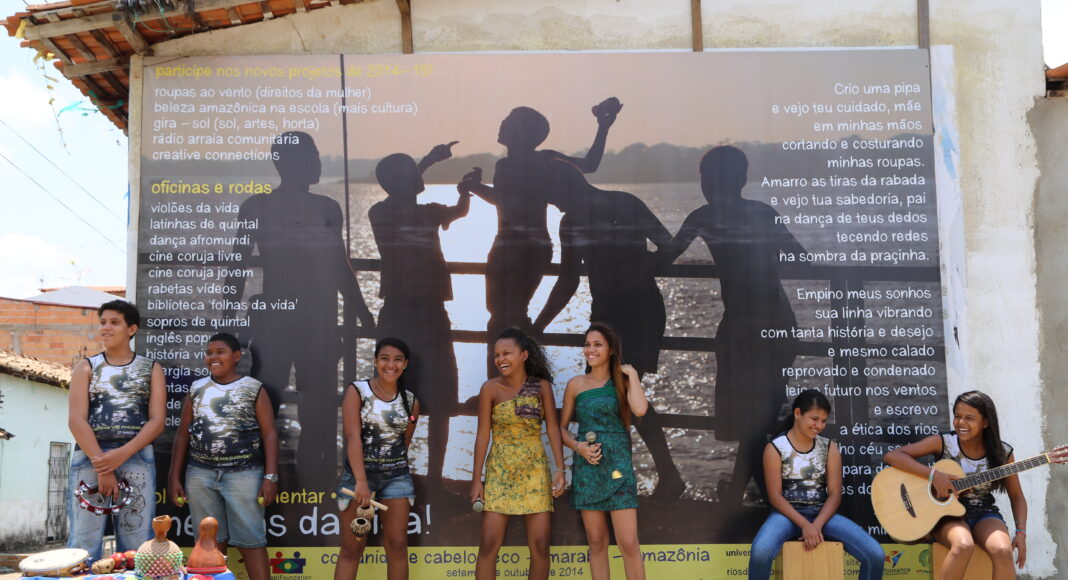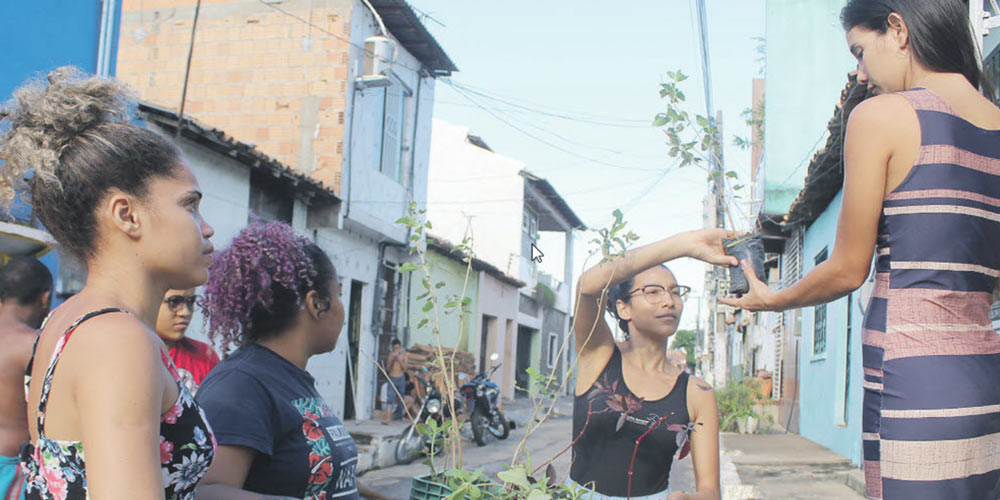In the second of three articles, Dan Baron continues his review of the eco-cultural project he has been coordinating in the Brazilian Amazon with young people from Marabá, Pará, in the Brazilian Amazon since 2009.
He revisits the history of the Backyard Drums group as it becomes the collective pulse of the the over-arching Rios de Encontro project. From their first ‘cultural night’ to an agonizing decision about their first international tour to New York.
You can read the first article here, and the final article here.
2. ‘We all go, or none of us goes!’
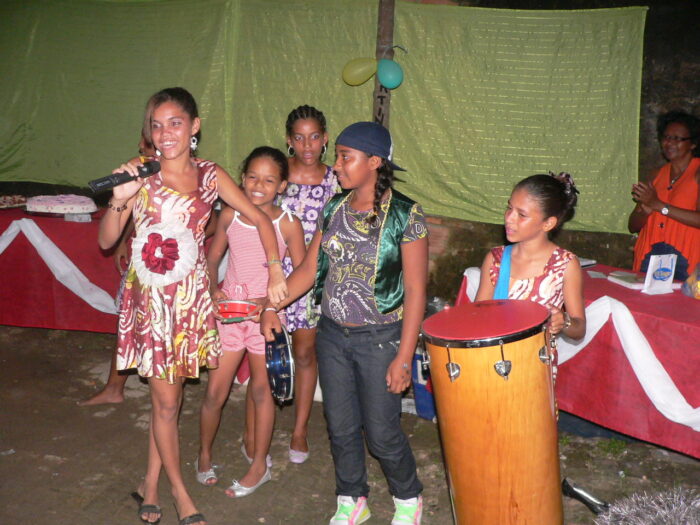
I open the 2012 Calendar to find the first cultural night created by our young collective. Camylla, our first teenage host, mic in hand, is speaking from the uneven, open-air cement stage of the Warehouse, surrounded by the musicians of Backyard Drums, all dressed in hand-sown costumes made from a dramatic Senegalese fabric, their hair braided tight to the curve of their heads, cascading onto their bare shoulders.
Camylla has just introduced the still timid percussionists Elisa and Evany and is addressing her grandmother, swaying in her hammock inside their wooden shack across the narrow street.
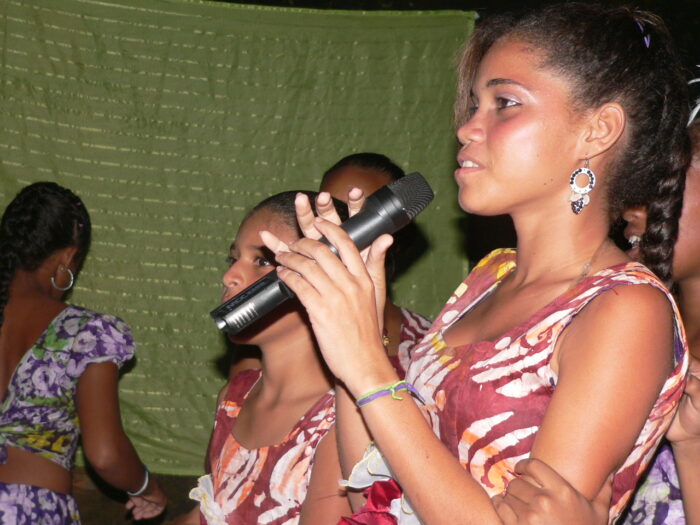
‘This is Tônica, the oldest Backyard Drum. Gran, thanks for raising us all on flour and recycled water from cooked beans. You’re so beautiful with those colourful beads in your braided grey hair’. Camylla is laughing, crying.
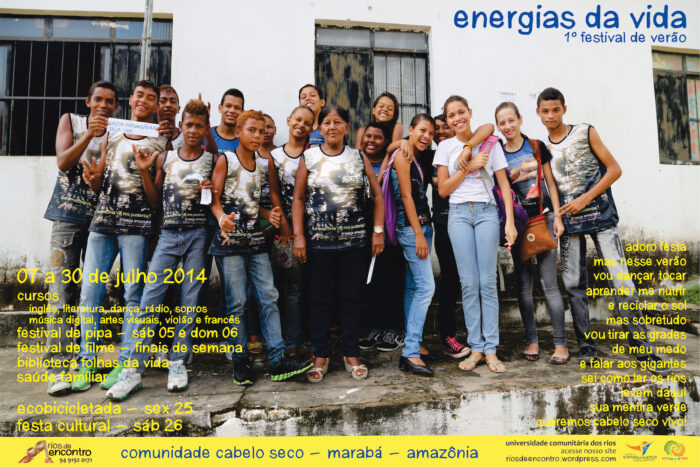
They speak in turn, each listening to the others’ proposals. Evany reads her summary: ‘We restore the donated derelict warehouse to create a rehearsal space. We buy drums, mics and speakers. We visit the capital to deepen our knowledge of the Amazon, and we create an open-air cinema, a children’s library and a dance company to research our community’s African roots. Is that everything?’
In the same photo narrative, I see Backyard Drums, now in costume, deciding how they will use a national award from UNICEF, if they win.
They agree. No vote, and by accident, they decide their own first micro-projects.
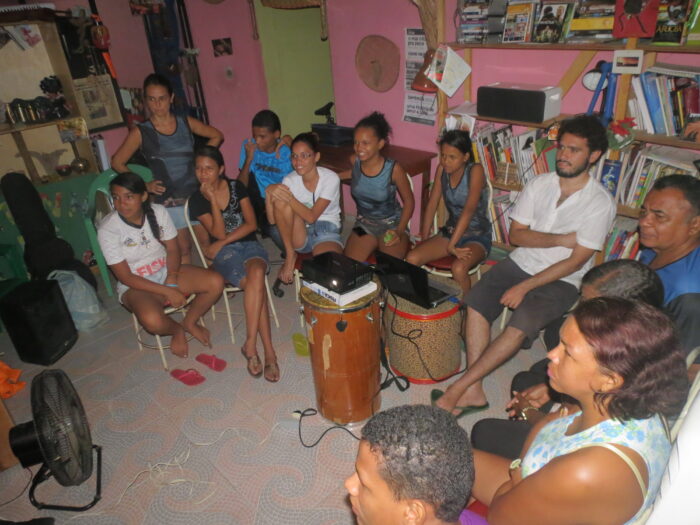
Later that year, in that same circle, Zequinha is explaining how the Vale mining company manoeuvred him into signing a contract and giving them a receipt for R$1,500 1)About US$900 at 2011 exchange rates – a fortune for this community., to pay for Backyard Drums to perform Alert Amazonia, Black Race and Amazonia Our Land. And I see all the youth, eyes ablaze, when they discover that, unknown to them, Zequinha had begun to use the fee to pay for their post-performance pizzas and a pair of trainers for Elisa, the poorest member of the band. And mestre Zequinha, watching them debate whether we should return the UNICEF national prize, R$100,000 awarded to Rivers of Meeting for its performance ethics?
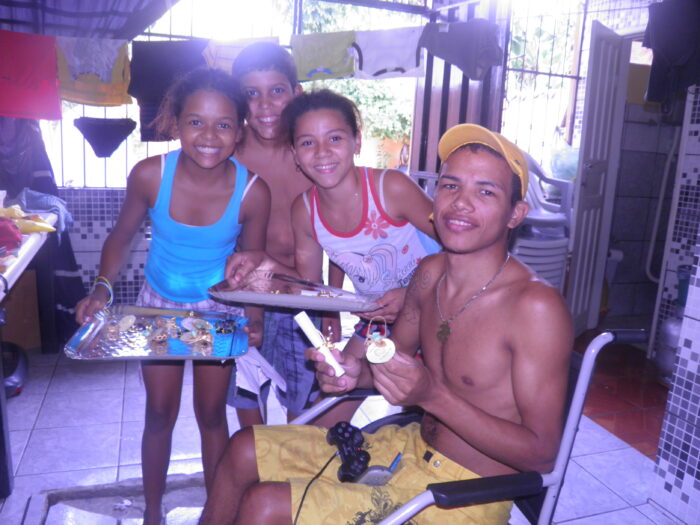
Mano 2)Manoela Souza, co-coordinator of the Rivers of Meeting project (2008-), cofounder in 2005 and current president of the Transformance Institute. Our collaboration dates back to 1998. and I remain silent. Zequinha looks down. Each performer speaks, weighing their options, their most effective action, and then they decide, unanimously: the Vale fee will be divided into fifteen R$100 grants, for the most vulnerable youth in Cabelo Seco: Alexandre, a youth maimed by a stray bullet, caught in crossfire between drug-gangs, is one of those selected.
’We’ll present the grants during the coming Afro-Solidarity night. And we’ll use TV interviews to explain what we’ve learned: that we can learn from mistakes, transform them into unexpected new performances.’ Mano and I are moved to tears.
‘Decolonize leadership, democracy, governance, and finance’, I scrawl in my notebook.
Give us the chance to grow
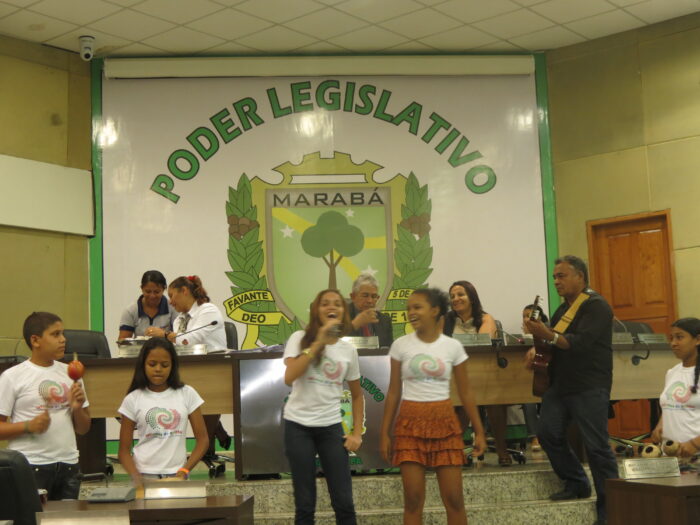
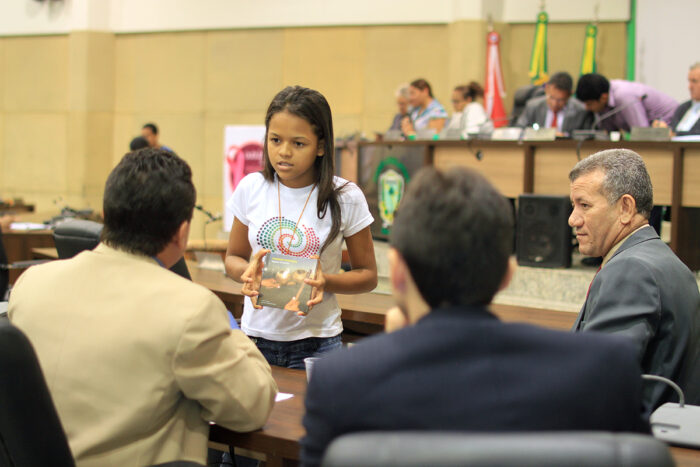
I flick through the 2014 and 2015 Calendars. The collective is now producing, participating in and publicizing workshops led by international artists in residence, recording their CD 3)Amazonia Nossa Terra – The Amazon Our Land, 2012. and performing in their square, neighbouring communities, social movements, parliament and Belem, yes, the capital of Pará!.
Suddenly, I recall something that’s never been documented…
We’re sitting with all their mothers at this table, in the Cottage. Camylla appears suddenly at the street widow. ‘Come quickly,’ she warns. ‘Everyone’s in the Warehouse. And the square’s talking.’ The full group of twelve youth coordinators are sitting in a circle when we enter, eyes swollen with tears. I explain our decision: ‘Four of you will not be going on the New York tour. It’s been a hard decision, made with the mothers’ collective. You disperse the rehearsals, you’re not ready to defend Amazonia, and you still can’t face a table or a fridge full of food without eating till you vomit. It’s better if you wait for the next tour.’
And I recall the youngest of the four, leaning forward: ‘Give us the chance to grow through responsibility, Dan, guided by Camylla, Evany and Carolayne, who’ve already travelled.’ And Elisa, always silent in public, looking at Mano and me, raises her hand, suddenly.
In an instant, I see Elisa lying on the stone floor of her front room, convulsing silently in my arms, scalded by the huge panela she was hugging to her chest on the back of a bike, delivering tacaca 4)A traditional Amazonian dish of indigenous origin made of dried shrimps in tucupi sauce, ground yucca root, and jambu plant. to a street bingo. In our second year, Elisa had ‘fallen sick’. We invited her and her mother, Elisangela, to sit at the table, to offer support. She became our project’s first teen mother, first to ‘embrace her hair’, first to comfort her weeping mother, a grandmother, beaten by her own father, in her presence. All without saying a word. And now, with calm, unexpected clarity, her first words: ‘Either we all go, or none of us goes.’
A kind of keening begins, almost inaudible, as each young coordinator, one by one, joins hands in the eye-shaped circle, all twelve exchanging consoling glances, a gaze that gathers in collective defiance, authority and surprise, as it circled the rehearsal space.
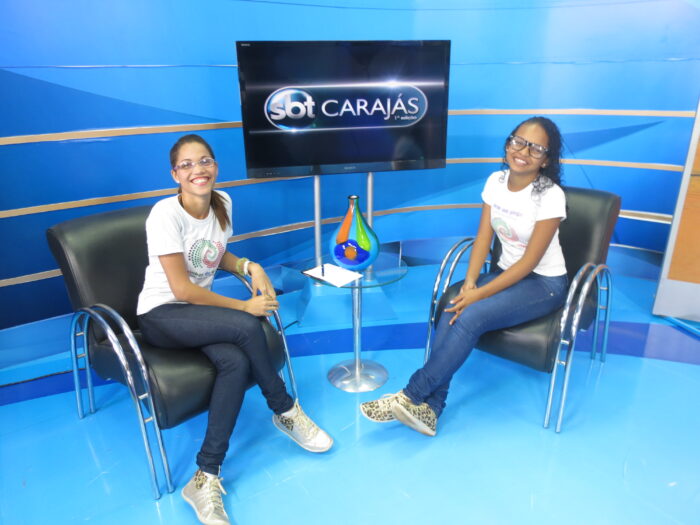
Mano and I, in a split second glance, decide to trust their judgement. I recall the silence that followed our simple ‘Ok’, broken by squeals of laughter and delight as all twelve youth grasp the significance of what has just happened.
I turn the pages of the remaining three Calendars, renewing my memory of the emergence of AfroRaiz Collective as it gradually transformed itself, by transforming its favela into an eco-cultural community. Each festival, integrated arts program and forum gradually inspiring pedagogical community policing, solar-powered universities, teacher education through the arts, medicinal gardens in schools, and always debates, on TV and radio, and in the press, about a sustainable Good Living Amazon. All achieved through performance. Even on the River Tocantins, in the airport and in the City Council chamber.
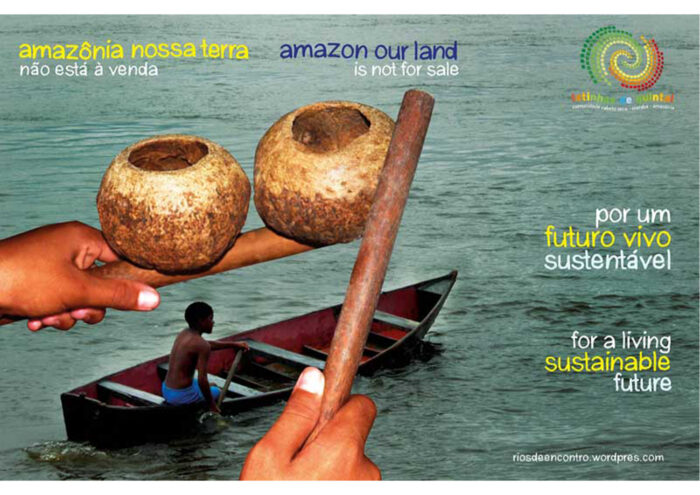
All photos © Rios de Encontro, 2023
References
| ↑1 | About US$900 at 2011 exchange rates – a fortune for this community. |
|---|---|
| ↑2 | Manoela Souza, co-coordinator of the Rivers of Meeting project (2008-), cofounder in 2005 and current president of the Transformance Institute. Our collaboration dates back to 1998. |
| ↑3 | Amazonia Nossa Terra – The Amazon Our Land, 2012. |
| ↑4 | A traditional Amazonian dish of indigenous origin made of dried shrimps in tucupi sauce, ground yucca root, and jambu plant. |

